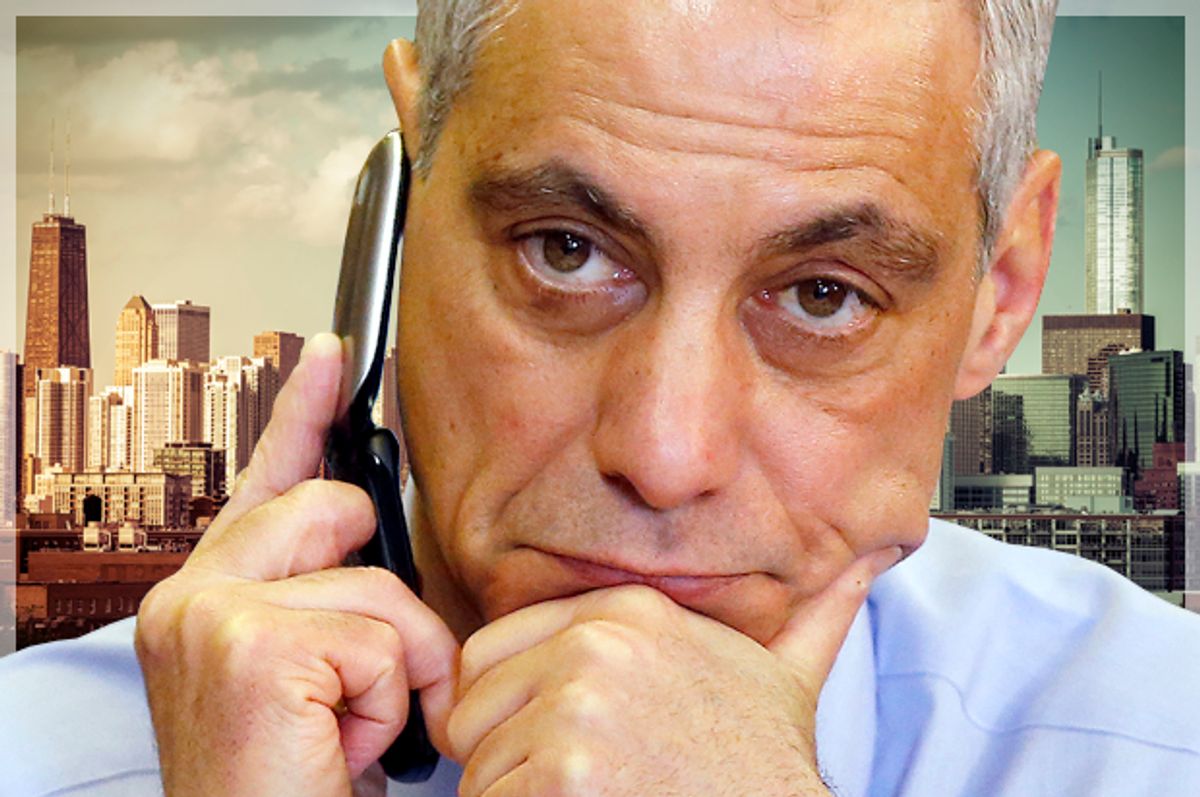For those pining for a Democratic Party that tries to represent more than the whims of the rich and powerful, these are, to say the least, confusing times.
On the presidential campaign trail, Hillary Clinton has been promoting standard pro-middle-class rhetoric, yet also has been raking in speaking fees from financial firms. One of her potential primary challengers, former Maryland Gov. Martin O'Malley, has been sounding anti-Wall Street themes, but only after finishing up two terms in office that saw his state plow more public pension money into Wall Street firms, costing taxpayers hundreds of millions of dollars in financial fees.
Similarly, in Washington, the anti-Wall Street fervor of those such as Massachusetts Sen. Elizabeth Warren sometimes seems as if it is on the ascent -- that is, until big money comes calling.
Indeed, on the very same day Reuters reported on big banks threatening to withhold campaign contributions from Democratic coffers, Democratic lawmakers abruptly coalesced around Charles Schumer as their next U.S. Senate leader. CNN captured in a blaring headline how unflinching an ally the New York senator has been to the financial elite: "Wall Street welcomes expected Chuck Schumer promotion." Notably, Democrats appeared ready to promote Schumer over Assistant Democratic Leader Dick Durbin, who once dared to publicly complain that “banks frankly own” Capitol Hill.
It would be easy to conclude that the status quo is winning Democratic politics -- but a series of high-profile elections shows the trends are markedly different outside the national political arena.
Two years ago, the era of billionaire Republican Mayor Michael Bloomberg and his Wall Street-worshiping city politics ended when populist Democrat Bill de Blasio and a slate of progressive city councilors backed by New York’s Working Families Party were swept into office promising to increase taxes on millionaires and fund universal pre-kindergarten. A year later, New York’s conservative Democratic Gov. Andrew Cuomo and his $40 million campaign war chest couldn’t muster two-thirds of the Democratic primary vote against an unknown progressive opponent named Zephyr Teachout. Though Cuomo was ultimately reelected, he was humiliated, and his future prospects have been significantly diminished.
Now comes Chicago, where Mayor Rahm Emanuel has shuttered schools, handed out big corporate subsidies, blocked a financial transaction tax and pushed for cuts to city workers’ retirement benefits. He made the old corporate Democratic assumption, betting that he could easily win reelection by simply spending opponents into the ground.
No doubt, Emanuel succeeded in the latter part of that equation. With six-figure checks from financial executives, he amassed $15 million and outspent his top challenger, Jesus “Chuy” Garcia, by a 12-to-1 margin. But because of a massive grassroots organizing campaign, Garcia got enough votes to force the first mayoral runoff in the city’s history. At the same time, voters added more progressive voices to the city council.
Lambasted as “Mayor 1 Percent,” Emanuel has been forced to champion more progressive policies to try to appease the Democratic base -- he suddenly backed a $13 minimum wage and signed an ordinance compelling developers to pony up more cash for affordable housing. His underfinanced opponent Garcia still may lose the April 7th election, but in a city that has for decades been under the thumb of corporate Democrats’ political machine, a deeper victory for progressives has already happened.
“We've put every Democrat in America on notice that there's a political price to pay for putting the demands of hedge-fund billionaires ahead of the needs of working families,” said Kristen Crowell, executive director of the grassroots Chicago group United Working Families, a sister organization of New York’s progressive Working Families Party.
As perplexing as the Democratic Party’s divide is, Crowell’s straightforward statement rings true. National Democratic politicians may not yet be hearing the message, but if they hope to hang onto power, they probably should start listening.

Shares